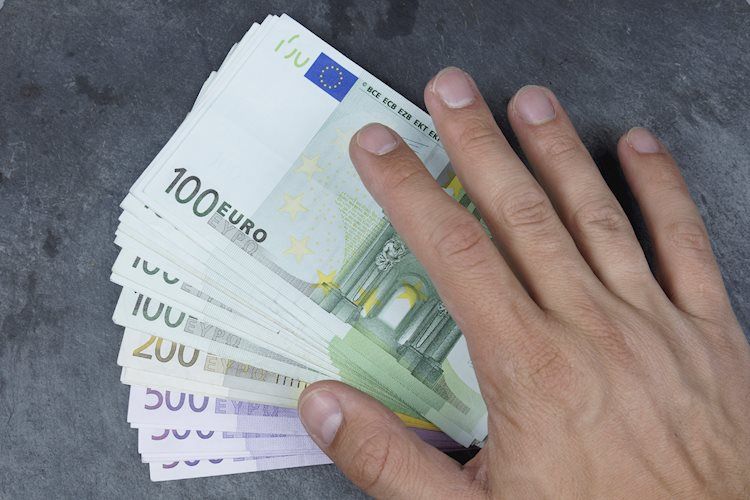Share:
Oasis Network price has established support at $0.04186 amid rising momentum and growing investor sentiment.
ROSE could make a 15% climb to test the supply zone at $0.05039 or break past to the range highs around $0.05877.
Invalidation of the bullish thesis would occur upon a decisive daily candlestick close below the initial support at $0.04186.
Oasis Network (ROSE) price had been in a steady downtrend since mid-August after breaking from a two-week consolidation. The slump came after US Securities and Exchange Commission (SEC) chair Gary Gensler alluded to the agency shifting focus toward AI tokens, causing a notable slump in related tokens like Injective (INJ), The Graph (GRT), and SingularityNET (AGIX).
Oasis Network (ROSE) could be ready for recovery, if broader industry conditions allow, after securing support around the $0.04186 level. The defense line comes into play in alignment with a pattern with the Relative Strength Index (RSI). That, every time the momentum indicator tested the indicated level, ROSE price reacted with a significant uptick.
If history is enough to go by, therefore, and if bullish momentum grows, expect the value of the Oasis Network token to rise, breaking past the 50-day Exponential Moving Average (EMA) at $0.04842 to test the supply zone indicated in red by tagging the 100-day EMA at $0.05039. Such a move would constitute a 15% climb from the current level.
The supply zone, where traders are willing to sell aggressively once the balance shifts to the distribution side, would be the likely turnaround point for ROSE price because sellers populate this order block.
However, if this zone fails to hold as resistance, Oasis Network token price could breach through, converting the order block to a bullish breaker, before tagging the 200-day EMA at $0.05446 or, in a highly bullish case, reach higher to confront the $0.05877 hurdle, where ROSE was rejected around June 4.
To support this outlook, the RSI has already tipped north after testing a multi-month low, which is the aftermath of a consolidation breakdown after stagnant volatility. The RSI is about to cross above the critical level, 30, to the north, thereby confirming Welles Wilder’s interpretation of an oversold asset. This means the market could be ripe for a pullback.
It is worth mentioning, however, that this outlook would be stronger and more sustainable if broader industry conditions ease because, as it stands, the market seems to be following news around Digital Currency Group’s (DCG) Genesis and FTX news. Should things ease, giving even Bitcoin (BTC) price a breather so that the flagship crypto can continue in its horizontal move or rally, at best, then the odds for ROSE’s 15% ascent would increase.
ROSE/USDT 1-day chart
Santiment data shows that social dominance for the Oasis Network has been on steady growth over the last month. This means there have been a lot of mentions for ROSE token across social media, relative to over 50 other tokens. This could bode well for the price.
ROSE Santiment: Social dominance metric
On the other hand, with the industry still bleeding in the wake of bearish news, the uptrend for ROSE price could be postponed, with the Oasis Network token either moving horizontally or breaking down below the $0.04186 level.
A decisive break below the current support would invalidate the bullish thesis, with a possible retest of the December 30 lows of $0.03370 or the zone just above it. Such a move would denote a 20% drop from current levels.
Notably, the red histograms of the Awesome Oscillator indicate the presence of bears in the market. This, coupled with the shaky RSI position below 50, makes a downward pull easy.
How do new token launches or listings affect cryptocurrency prices?
Token launches like Arbitrum’s ARB airdrop and Optimism OP influence demand and adoption among market participants. Listings on crypto exchanges deepen the liquidity for an asset and add new participants to an asset’s network. This is typically bullish for a digital asset.
How do hacks affect cryptocurrency prices?
A hack is an event in which an attacker captures a large volume of the asset from a DeFi bridge or hot wallet of an exchange or any other crypto platform via exploits, bugs or other methods. The exploiter then transfers these tokens out of the exchange platforms to ultimately sell or swap the assets for other cryptocurrencies or stablecoins. Such events often involve an en masse panic triggering a sell-off in the affected assets.
How do macroeconomic releases and events affect cryptocurrency prices?
Macroeconomic events like the US Federal Reserve’s decision on interest rates influence risk assets like Bitcoin, mainly through the direct impact they have on the US Dollar. An increase in interest rate typically negatively influences Bitcoin and altcoin prices, and vice versa. If the US Dollar index declines, risk assets and associated leverage for trading gets cheaper, in turn driving crypto prices higher.
How do major crypto upgrades like halvings, hard forks affect cryptocurrency prices?
Halvings are typically considered bullish events as they slash the block reward in half for miners, constricting the supply of the asset. At consistent demand if the supply reduces, the asset’s price climbs. This has been observed in Bitcoin and Litecoin.
Share:
Cryptos feed
Information on these pages contains forward-looking statements that involve risks and uncertainties. Markets and instruments profiled on this page are for informational purposes only and should not in any way come across as a recommendation to buy or sell in these assets. You should do your own thorough research before making any investment decisions. FXStreet does not in any way guarantee that this information is free from mistakes, errors, or material misstatements. It also does not guarantee that this information is of a timely nature. Investing in Open Markets involves a great deal of risk, including the loss of all or a portion of your investment, as well as emotional distress. All risks, losses and costs associated with investing, including total loss of principal, are your responsibility. The views and opinions expressed in this article are those of the authors and do not necessarily reflect the official policy or position of FXStreet nor its advertisers. The author will not be held responsible for information that is found at the end of links posted on this page.
If not otherwise explicitly mentioned in the body of the article, at the time of writing, the author has no position in any stock mentioned in this article and no business relationship with any company mentioned. The author has not received compensation for writing this article, other than from FXStreet.
FXStreet and the author do not provide personalized recommendations. The author makes no representations as to the accuracy, completeness, or suitability of this information. FXStreet and the author will not be liable for any errors, omissions or any losses, injuries or damages arising from this information and its display or use. Errors and omissions excepted.
The author and FXStreet are not registered investment advisors and nothing in this article is intended to be investment advice.





